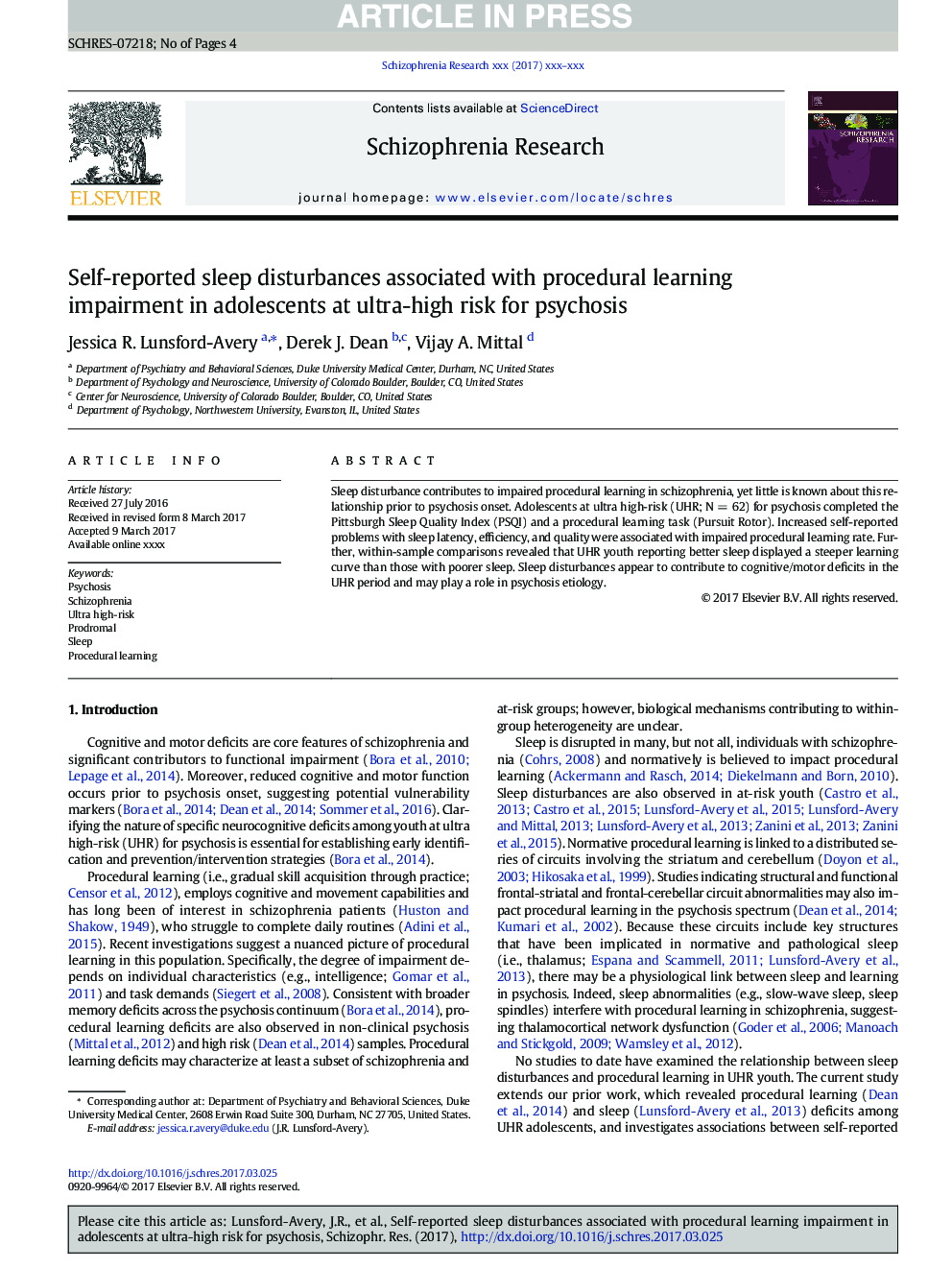| Article ID | Journal | Published Year | Pages | File Type |
|---|---|---|---|---|
| 6822534 | Schizophrenia Research | 2017 | 4 Pages |
Abstract
Sleep disturbance contributes to impaired procedural learning in schizophrenia, yet little is known about this relationship prior to psychosis onset. Adolescents at ultra high-risk (UHR; NÂ =Â 62) for psychosis completed the Pittsburgh Sleep Quality Index (PSQI) and a procedural learning task (Pursuit Rotor). Increased self-reported problems with sleep latency, efficiency, and quality were associated with impaired procedural learning rate. Further, within-sample comparisons revealed that UHR youth reporting better sleep displayed a steeper learning curve than those with poorer sleep. Sleep disturbances appear to contribute to cognitive/motor deficits in the UHR period and may play a role in psychosis etiology.
Related Topics
Life Sciences
Neuroscience
Behavioral Neuroscience
Authors
Jessica R. Lunsford-Avery, Derek J. Dean, Vijay A. Mittal,
